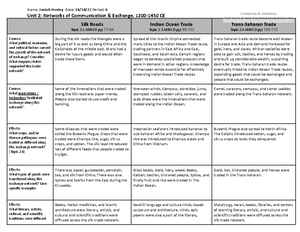- Information
- AI Chat
Was this document helpful?
1.3 FRQ AP Psychology
Subject: ap psychology
132 Documents
Students shared 132 documents in this course
School: High School - US
Was this document helpful?

Blaize Sullivan
Mrs. Young
AP Psych – 1.03 FRQ
23 September 2022
Prompt:
A psychology graduate student conducted a study at the entrance to a football game at the
university. The entrance was specifically for students who made the Dean's List for academic
achievement during the previous semester. As they arrived, the graduate student asked half of the
students to record their attendance on an attendance sheet. The remaining half were allowed to
enter the game without recording their attendance. The graduate student told every student to
take one soda and one hamburger from a concessions table sponsored by the Dean's Office. She
then returned to the sign-in table out of sight of the concessions. This gave the students the
opportunity to take additional food. The graduate student measured the percentage of students
who took additional free food. Her hypothesis was that students would take more food when they
were not asked to sign in. The results are shown in the graph below; assume all differences are
significant.
The confounding variable in experiments is a variable that is not a part of the experiment
that effects the results. This could be such as the students The confounding variables in this
experiment are how many of the Dean's List students sign in, and if the student is alone or in a
group. The graduate running the experiment will get a random amount of Dean's List students
attending the game and if the student is alone or in a group is also random.
The independent variable is whether or not the student signs in on the attendance sheet.
The graduate student running this experiment will choose at least half of the Dean's List students
to sign-in on the sheet and who is chosen is completely random.








